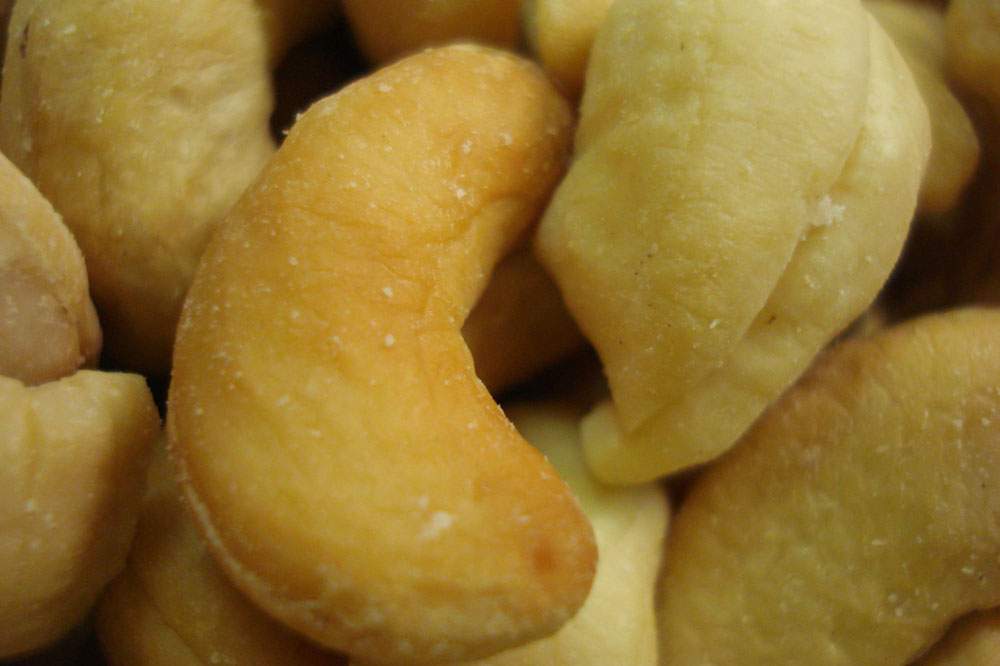
Part of the fun of eating walnuts or pecans is cracking the shell and getting the nut. However, some nuts, like cashews, are almost always sold shelled and roasted. Why aren't cashews sold in the shell?
Anacardiaceae
Cashews, Anacardium occidentale are in the same family as poison ivy and poison sumac. Like those plants, the cashew plant contains powerful chemical irritants known as anacardic acids, so handling and eating raw cashews will cause the familiar itchy skin reaction in people sensitive to the chemicals. People who are sensitive to one plant in the family, for example poison ivy, are likely to be sensitive to others.
Why isn't there a reaction when people eat processed cashew nuts from the grocery store, then? The irritants are found in the shell oil, but not in the nuts themselves. Handling the shell or eating a nut with shell oil on it can cause a reaction.
This is why they're sold shelled, but why are they roasted? Roasting at high temperature destroys the shell oil, so commercially sold nuts will not trigger a reaction. Cashew nuts that are still in the shell or that are shelled and roasted at home at lower temperatures may be contaminated with the oil, so, shelling raw cashews is about as much fun as handling poison ivy.
Read More
- Sometimes You Feel Like A Nut - Sometimes You Really Are One!
- Sort Nuts By Shaking The Can
- Hypoallergenic Nuts Could Be Solution For Allergy Sufferers
Sources
- Higgins, Chris. "Cashew Nuts Grow Out of Crazy Apples." Mental Floss. July 18, 2012.
- Morton, J. 1987. Cashew Apple. p. 239–240. In: Fruits of warm climates. Julia F. Morton, Miami, FL.
- PCAVGhana. "Cashew Nut Processing - Peace Corps Ghana." YouTube. October 09, 2012.









